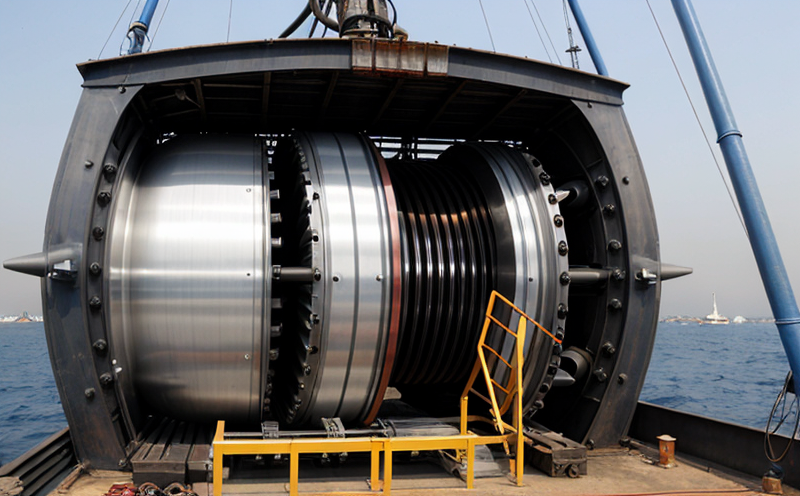Mechanical Testing of Ship Engines for Stress Resistance
Unlocking Optimal Performance Mechanical Testing of Ship Engines for Stress Resistance
As the backbone of the maritime industry, ship engines play a vital role in ensuring safe and efficient navigation across the globes oceans. With millions of tons of goods transported daily, the reliability and performance of these engines are crucial to preventing accidents, minimizing downtime, and meeting regulatory standards. In this context, mechanical testing of ship engines for stress resistance has become an essential service for businesses seeking to optimize their engine performance and extend its lifespan.
What is Mechanical Testing of Ship Engines for Stress Resistance?
Mechanical testing of ship engines for stress resistance involves subjecting the engines components to various mechanical loads to evaluate their ability to withstand stresses and strains under operational conditions. This laboratory service assesses the material properties, structural integrity, and performance of critical engine parts, such as cylinders, pistons, crankshafts, and valves.
The Importance of Mechanical Testing of Ship Engines for Stress Resistance
Regular mechanical testing helps prevent catastrophic failures, which can result in costly repairs, lost productivity, and environmental damage. By identifying potential weaknesses and vulnerabilities early on, businesses can take proactive measures to maintain their engines optimal performance and extend their lifespan. In addition, regulatory bodies require regular inspections and maintenance records for certification purposes.
Advantages of Using Mechanical Testing of Ship Engines for Stress Resistance
By utilizing Eurolabs mechanical testing services, businesses can reap numerous benefits that contribute to improved engine performance, reduced operational costs, and enhanced safety
Improved Engine Reliability Regular stress resistance testing enables the identification of potential issues before they become major problems, ensuring uninterrupted operations and minimizing downtime.
Enhanced Safety By evaluating an engines structural integrity and material properties, businesses can mitigate risks associated with mechanical failures, reducing the likelihood of accidents and environmental damage.
Extended Engine Lifespan Early detection of wear and tear allows for targeted maintenance and repairs, extending the engines lifespan and minimizing replacement costs.
Compliance with Regulatory Standards Regular testing ensures compliance with maritime regulations and industry standards, avoiding fines and penalties associated with non-compliance.
Cost Savings Preventative maintenance reduces repair costs, downtime expenses, and potential environmental damage claims.
Improved Fuel Efficiency Optimized engine performance contributes to reduced fuel consumption, lower emissions, and decreased operating costs.
Increased Productivity Reliable engines minimize delays and lost productivity, enabling businesses to meet demanding schedules and deadlines.
Key Benefits of Mechanical Testing of Ship Engines for Stress Resistance
Eurolabs mechanical testing services offer a range of benefits that cater to the unique needs of ship engine operators
Customized Test Programs Eurolab develops tailored test plans based on specific engine requirements, ensuring thorough evaluation and precise results.
State-of-the-Art Equipment Our laboratory is equipped with advanced machinery and technology for accurate and reliable testing.
Expert Analysis and Reporting Qualified engineers provide comprehensive reports, highlighting areas of improvement and recommending corrective actions.
Quick Turnaround Times Eurolabs streamlined process ensures timely delivery of test results, minimizing downtime and allowing businesses to plan maintenance accordingly.
Frequently Asked Questions
Q What types of ship engines can be tested for stress resistance?
A Our laboratory is equipped to handle a range of engine types, including diesel, gas turbines, and steam turbines.
Q How often should mechanical testing be performed on ship engines?
A Regular testing intervals vary depending on factors such as usage, age, and operating conditions. Eurolabs experts can help determine the optimal testing schedule for your engine.
Q What are the benefits of partnering with a reputable laboratory like Eurolab?
A By working with an experienced and certified laboratory, businesses can ensure accurate test results, precise analysis, and actionable recommendations for improving engine performance.
Q Can mechanical testing be used to determine the root cause of engine failures?
A Yes, our experts analyze test data and reports to identify potential causes of engine malfunctions, enabling targeted maintenance and repairs to prevent future occurrences.
Conclusion
Mechanical testing of ship engines for stress resistance is a critical service that enables businesses to optimize their engine performance, ensure regulatory compliance, and minimize operational risks. By partnering with Eurolab, operators can benefit from advanced technology, expert analysis, and customized test programs tailored to their specific needs. Dont compromise on safety or efficiency choose the trusted experts in mechanical testing for ship engines. Contact us today to schedule your stress resistance testing program.
About Eurolab
As a leading provider of laboratory services, Eurolab is committed to delivering accurate, reliable, and actionable results that support the success of maritime businesses worldwide. Our team of experienced engineers and technicians are dedicated to helping clients optimize their engine performance, extend lifespan, and minimize operational costs.




